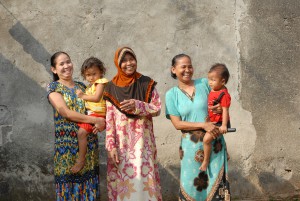Equitable financing and solidarity

Ensuring the equitable and sustainable financing of national social protection schemes is one of the key challenges for policy makers. ILO Recommendation No. 202 underlines the principles of solidarity in financing as well as financial, fiscal and economic sustainability with due regard to social justice and equity.
Social protection systems can only guarantee protection for all members of society, if appropriate risk pooling and redistribution mechanisms are in place, as a matter of solidarity between the healthy and the sick, between economically active age groups and elderly and children, between those with well-paying jobs or high incomes and those without employment or with very low incomes. Solidarity in financing across all members of society cannot be achieved without considering a diversity of financing mechanisms for social protection provisions, either by subsidising non-contributory schemes for those who are unable to contribute or have low and incomplete contributory histories, or by setting up non-contributory schemes. In fact, many countries, such as Brazil, Ghana and Thailand, have used a combination of social security contributions and taxation (partly supported by external resources) to extend social coverage to larger groups of the population with a view to achieving universal protection.
Photo credit: “Borrowers’ group in Indonesia” by waterdotorg (CCBY 2.0 via Flickr).
Social Security (Minimum Standards) Convention, 1952 (No. 102)
A reference for the development of social security systems, Convention No. 102 is the flagship of the up-to-date social security Conventions since it is deemed to embody the internationally accepted definition of the very principle of social security. Convention No. 102 is unique for both its conceptual formulation of social security, and the guidance it provides for […]
Social Protection Floors Recommendation, 2012 (No. 202)
Recommendation No. 202 is the first international instrument to offer guidance to countries to close social security gaps and progressively achieve universal protection through the establishment and maintenance of comprehensive social security systems. To this aim, the Recommendation calls for (1) the implementation, as a priority, of social protection floors (SPF) as a fundamental element […]
Adoption of principles of collective financing and social solidarity in Bolivia
In 2010 Bolivia adopted a new constitution that established a new hierarchy of legal standards by giving precedence of international instruments ratified by state over national laws. In the spirit of harmonizing existing law to the new Constitution, the State and the Bolivian Workers’ Federation (COB) signed a framework agreement for the reform of Bolivian […]
The State of Social Enterprises in Sri Lanka
This report presents the findings of a recent study on social enterprises in Sri Lanka. The study used a combination of desk research, interviews with expert stakeholders and a survey of social enterprises, which engaged representatives from a diverse range of industries and sectors across the country. For the purposes of this research, social enterprises […]
Developing an Inclusive and Creative Economy: The state of social enterprise in Indonesia
Interest in social enterprises in Indonesia is growing alongside increased emphasis on entrepreneurship in general. This is evident in the growing number of events, research, and government activities focused on social enterprise. The concept of social enterprise was formally acknowledged for the first time by the Government of Indonesia in 2015, when the People’s Representative […]
The State of Social Enterprise in Kenya
In Kenya, where the youth unemployment rate is 25 per cent, 65 per cent of all social enterprises seek to create employment opportunities and the sector provides significant leadership opportunities for young people and women. Moreover, one in ten Kenyan social enterprise operates internationally.
Income Inequality and Labour Income Share in G20 Countries: Trends, impacts and causes
The Government of Turkey has made inclusiveness one of the three priorities of its G20 Presidency. This builds upon the G20 Leaders’ commitment in 2014 to “…support development and inclusive growth, and help to reduce inequality and poverty.” Indeed, the inclusiveness of growth, and the related issues of growing inequality and declining labour income […]
Why Macroeconomic Policy Matters for Gender Equality
This brief synthesizes research findings, analysis and policy recommendations on creating an alternative gender-responsive macroeconomic agenda. Macroeconomic policy, including fiscal and monetary policy, is often thought of as gender-neutral. But economic policy choices affect women and men differently because of their different positions in the economy, both market (paid) and non-market (unpaid). For instance, budget […]
Social Budgeting
The first part of the book provides guidance for designing a social accounting system. The second part shows how the relationships between the economy and the social protection system can be translated into a quantitative model which permits projections and simulations to be carried out. Includes two concrete country applications. Link to this page

